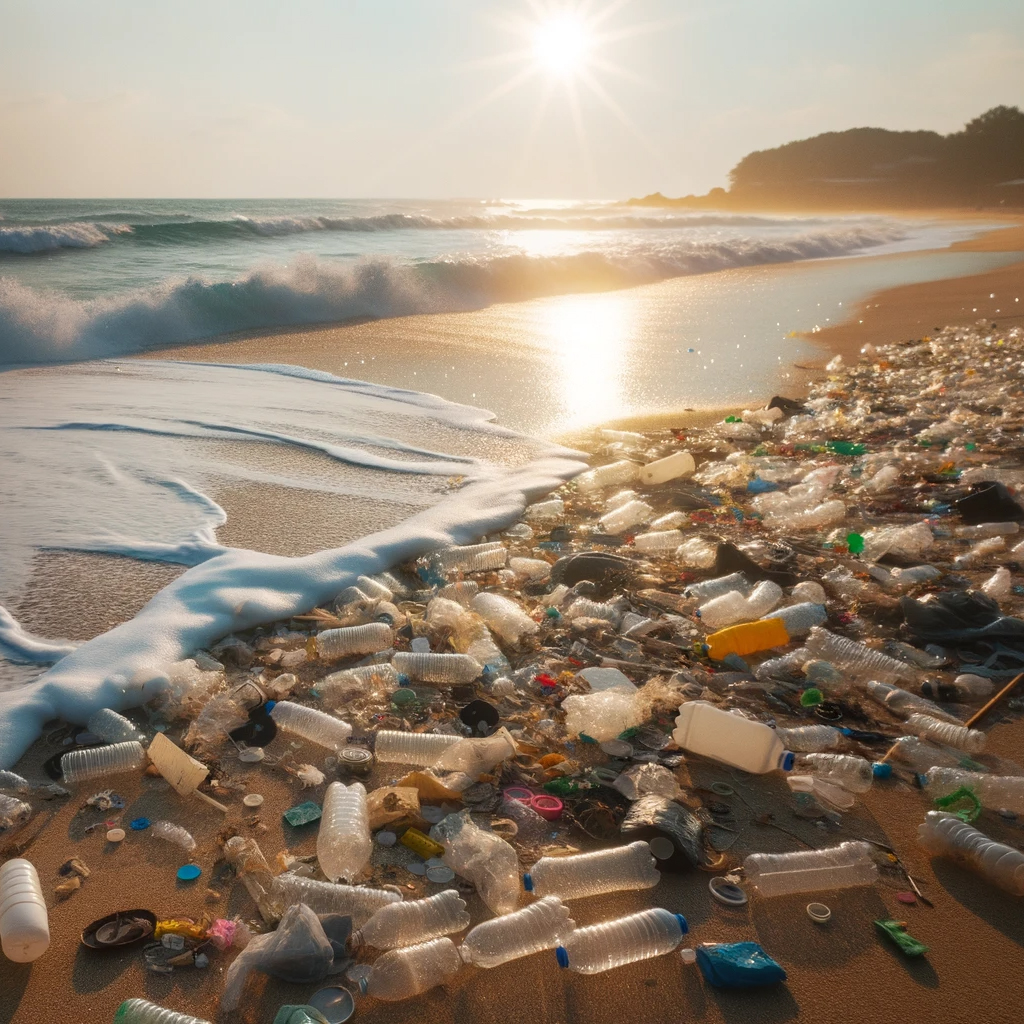Imagine walking along the pristine shores of your favorite beach, expecting the soft touch of sand underfoot, only to step on a discarded plastic bottle. This alarming situation is becoming all too common across the globe. Beaches, which should be natural sanctuaries, are becoming dumping grounds, with plastic litter emerging as a dominant threat.
The Magnitude of the Problem
- Volume of Plastic Waste: It’s estimated that every year, 8 million metric tons of plastic enter our oceans. This is equivalent to one garbage truck full of plastic dumping its contents into the ocean every minute.
- Longevity of Plastic: Unlike organic waste, plastic does not decompose quickly. A single plastic bottle can take up to 450 years to break down, while some plastic items can persist for more than 1,000 years.
- Microplastics: As plastic breaks down, it turns into smaller particles called microplastics, which are less than 5 millimeters in length. These tiny particles easily make their way into the food chain, threatening marine life and, ultimately, humans.
The Impact on Marine Life
Plastic litter isn’t just an eyesore; it’s a death trap for marine creatures. Animals such as turtles, seabirds, and fish often mistake plastic debris for food. Consuming plastic can lead to choking, internal injuries, and, in many cases, death.
Furthermore, plastic acts like a sponge, absorbing harmful chemicals from the surrounding environment. When ingested, these toxin-laden plastics can poison marine life.
Human Health Implications
The plastic litter problem doesn’t stop at affecting marine life. As plastics break down into microplastics and enter the food chain, they can end up on our plates. Consuming seafood contaminated with microplastics and associated toxins poses potential health risks to humans.
The Importance of Cleaning Our Beaches
- Preserving Ecosystems: Beaches are diverse habitats that support a wide range of organisms. By keeping them clean, we help ensure that these ecosystems thrive.
- Economic Impact: Many coastal areas depend on tourism as a significant source of income. Clean, attractive beaches draw tourists, supporting local economies.
- Inspiring a Culture of Responsibility: Participating in beach clean-up activities fosters a sense of community and responsibility. As more people become aware of the importance of preserving our natural spaces, it can lead to more significant societal change in reducing waste.
What Can We Do?
- Participate in Beach Cleanups: Regularly join or organize beach clean-up events in your community.
- Reduce Plastic Usage: Opt for reusable items instead of single-use plastics. Choose products with minimal packaging and support companies that use sustainable packaging.
- Spread the Word: Educate friends and family about the importance of maintaining clean beaches and the dangers of plastic pollution.
In Conclusion
The state of our beaches is a reflection of our relationship with the environment. The alarming increase in plastic litter on our shores is a wake-up call. It’s not just about aesthetics; it’s about preserving the health of our planet and ourselves. By understanding the importance of clean beaches and taking actionable steps towards a solution, we can ensure that future generations enjoy the beauty and bounty of our oceans.




